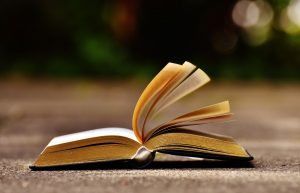blogger: Cynthia Ruchti
What are the Top Ten things that make a great book?
- Great cover
- Great title
- Intriguing beginning
- Fascinating characters
- A believable but interesting plot
- Surprising heroes
- Well-timed plot twists
- Meaningful takeaway value for the reader
- Written in a style that invites the reader into the story
- Satisfying ending
Avid readers may argue that the above list should have included their favorite point. But note that the list works well for both fiction and nonfiction. Even if it’s a biography, the character needs to be fascinating. Even if a memoir, a plotline (events happening that are connected by a common theme) drives the book.
Is it as easy to create a list of the Top Ten things good books are MISSING?
- Cumbersome, rambling beginnings
- Heavy doses of backstory dumped randomly on the page
- Impossible to follow location or era jumps/leaps/slips
- Unattached subplots (not directly connected to the main plot)
- Empty promises (a cozy mystery billed as suspense; a romantic suspense with such a weak romantic thread that the romance element can be lifted out of the story without damaging it; a Top Ten book with only nine points; dangling plot threads not resolved by the end of the book or series; tone of the title not reflected in the tone of the book; a book directed at Early Readers with concepts, theology, or language the reader can’t grasp)
- Hype unmatched by the content of the book
- Excess ink (A good book leaves breathing room, white space, margin–not just margins.)
- Rushed endings (Oops! The author filled the allotted pages before the story was over!)
- Lengthy descriptions of settings, eras, or character traits that sounded good in the writer’s mind but slow the reader’s experience
- A point, a reason for existing
We’re heading into a new year of wrangling words into meaningful patterns. Let’s make each word worth the paper or pixels! Early in the new year, pick a new-to-you book on the craft of writing, the art of persuasion, or decluttering your writing space. Approach your work with the goal of removing the things that are missing in the best books.



In cancer’s fatal Isandlwana, where
the impis line the beetling hill
and the blood-scent’s fell and vicious dare
is how to face the foe’s casual kill,
I turn to words that have no trope
to sell, nor style to flash;
I turn to words that give me hope
that a part of me outlives the clash
of my skin against metaphoric steel
that rends from within, and knows no
mercy, nor gives time to heal
but simply follows, blow on blow.
There will one day be no dawn, no leaven
save your words, pointing me to Heaven.
What a work of art of not only this poem, but of you my dear friend, fellow writer, lover of Jesus, citizen of heaven, and part of this blog family.
Leaving 2018 praying for you Andrew, your dear wife Barb, and all your furry friends. Going into 2019 doing the same. Be brave, be blessed.
Andrew, thank you for writing beauty out of pain. Thank you for reminding us of the power of choice words–beetling hill, foe’s casual kill, that a part of me outlives the clash, the leaven of words…
I love this post Cynthia. I like having both lists of the “what it–the good book–has” and ” what it is missing.” A copy of the lists will be posted in my work area today–tools to use in 2019.
Number 7 from the list of missing things really struck me–excess ink. I love that. Reading has such a combination of our senses involved, and as an artist and poet who in past years has been selected to display my art as well as perform public readings, I have experienced the effects of this important aspect of writing. Both the visual on the paper and the sounds of words create an undeniable and perhaps by many writers, an underestimated understanding of what leaving ink out and white space in does. It creates power in the words on the reader and listener (author readings, use of Audible or other audio books, or reading to others in any manner). Of this I am sure.
Have a wonderful last day of 2018 and a blessed first day of 2019.
Thanks to you and all the others at Books and Such who have posted on this blog, Between the Lines. I am grateful for all I have learned in 2018, and I look forward to the posts of 2019.
Thanks, Elizabeth! I love the acronym RUE–Resist the Urge to Explain. When I first learned about RUE, it opened my eyes to all the times I expressed a thought, then expressed it again, not confident I’d said it clearly enough and (in hindsight) not allowing for what the reader brings to the table. In dialogue, particularly, often MORE is said by what’s left out than what’s included.
“What are your plans for the day, Julie?”
Moments ticked by.
“Julie, your plans?”
The younger woman lifted her chin. “I know you’re not my only mother. When I find the other one–the one who doesn’t ask–I’ll never have to hear that question again.”